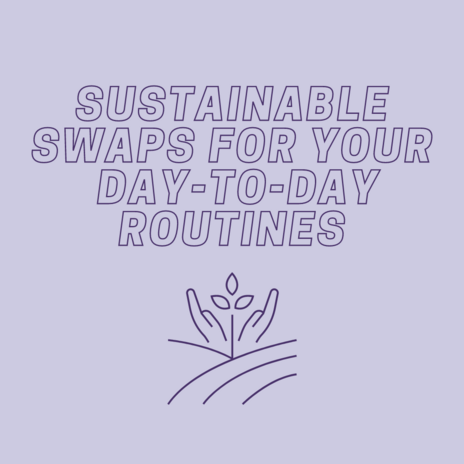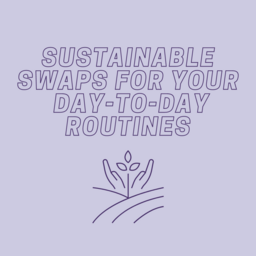It’s no secret that the way humans live today is detrimental to our environment. The innovative development of new products, vehicles, and habits has made our lives a lot easier, but with an associated cost for sustainability. Although changes are needed on a much larger scale to really slow down the damage being done to the environment, there are also some small ways that we can reduce waste and live more sustainably.
- Use Dryer Balls Instead of Sheets
-
Although dryer sheets are great for reducing static and leaving your laundry feeling soft, they are made from synthetic polyester that is designed to be used once and thrown out. After you’re done using them, they persist in the environment and add to the waste we all produce. Luckily, there are many options for swapping these out, like wool balls and other dryer ball products made from biodegradable materials. They can be used for up to 1000 loads of laundry, don’t contain any toxic chemicals, and break down after they are discarded. They can even speed up the drying process and you can add essential oils to them in order to still get a nice scent on your clothes.
- Opt For Refillable Cleaning Products
-
Living away from home means that the responsibility of keeping your space clean rests fully on your shoulders. Between plastic bags for trash, spray bottles and single use wipes, keeping everything tidy can add up to a lot of waste. Now, there are a few more sustainable options for household cleaning products. Grove Collaborative is a brand focused on developing cleaning products that are healthier for us and the environment. They use plant-based formulas, ethical supply chains, and sustainable materials to make their products. Blueland is another eco-friendly cleaning brand that gives buyers a “Forever Bottle” that they can fill with water and the cleaning solution in a tablet form to refill on the products they need. This helps save money with affordable refills, save space by downsizing storage, and save the Earth by reducing plastic waste.
- Replace Everyday Products Made From Plastic
-
Plastic use has been heavily ingrained in many of our daily routines. Brushing your teeth, washing your hair, storing leftover food and even grocery shopping are areas where plastic products slip in and further increase our waste. Swapping a few of the items we rely on everyday to those made from sustainable materials can help make a difference in the long run. Bamboo toothbrushes, reusable tote bags for shopping, reusable bottles for storing cleaning products, and non-plastic storage options are all small swaps that you can incorporate into your life and make an impact on sustainability.
- Try Getting Your Class Materials Through Interlibrary Loan
-
A sneaky way that college life produces excess waste is through the required materials everyone purchases for classes each term. There has been a big shift to providing materials in an online format, however some classes still necessitate purchasing physical copies of the course materials and it isn’t always possible to find PDFs of specific books. As each quarter passes, the pile of books that may never be opened again accumulates more and more. One way to receive these necessary materials while cutting down on book waste and saving money is to use the Interlibrary Loan program. If the library on campus doesn’t have access to a material you need, there is a form that you can submit to request that they borrow it from another library so that you can use it for the term. This has helped me avoid purchasing one-time-use books, keeping my waste down and also mitigating the costs associated with classes.
- Join Campus Organizations Advocating For Sustainability Justice
-
Outside of these everyday swaps for your routine, there are also many opportunities through campus organizations to get active in advocating for sustainability justice. Real Food at NU works to make the university’s food system more socially just and environmentally sustainable. Fossil Free Northwestern fights for climate and environmental justice. Wild Roots works in the Wild Roots Garden to help students think critically about sustainability, social justice, and our food system.
These small changes can impact the waste that we as individuals produce and inspire others in our community to do the same. As we adopt these sustainable practices, we should also remember to advocate for large-scale change so that we can truly see a positive impact on our environment.


